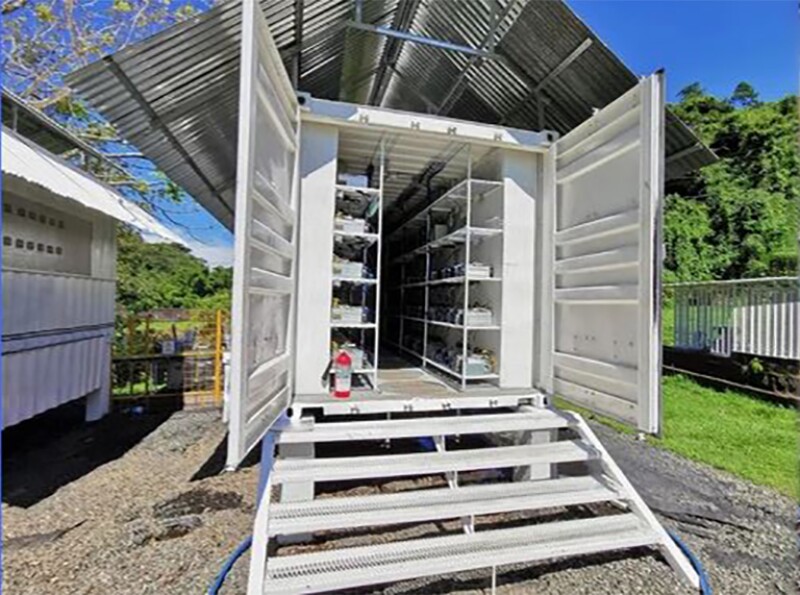While some countries are blaming and banning crypto mining because the activity often contributes to power outages by stressing local power grids, Costa Rica may have resources to become a crypto mining mecca—hydroelectric power.
When the Costa Rican government stopped buying electricity during the pandemic from a $13.5-million hydroelectric power plant along the Poas River, 22 miles outside of the capital of San Jose, crypto miners took over to create a new revenue stream that now keeps the power station in business.
After being shut down for 9 months, the private company that ran the plant in Alajuela, Costa Rica, invested $500,000 to create conditions to host digital mining computers, which are powered by the facility’s 3-MW generation capacity, according to Reuters.
Inaugurated in April 2021, the Data Center CR now hosts 150 customers, all local Costa Ricans, who operate 24/7 from eight containers that have been set up next to the plant, which powers more than 650 machines. At the time of its launch, the center already had 250 computer “mines” operating; it has a capacity for 1,000 units.
Eduardo Kopper, president of the company, said in a statement at the time of the launch, “We are proud to inaugurate the first digital mining center in Costa Rica. The country, as a result of the pandemic, has reduced its energy consumption, and we have energy that we could not sell or export, so we found a creative, innovative, and different solution to reach the world with a clean and green Costa Rican product."
Data Center CR’s website highlights energy from its own hydroelectric plant, a machine-ready data center, 24/7 security, high-speed optical fiber, and monitoring of temperature and humidity.
Costa Rica’s experience does seem counterintuitive, however.
Kazakhstan, to cite one example, attributed its decision to double domestic prices of liquefied petroleum gas (LPG) on 1 January—a decision it reversed after violent protests broke out in response—to the rising cost of natural gas and the strain that crypto miners were placing on the electricity grid.
Many of Kazakhstan’s crypto miners had in fact relocated there from China after Beijing banned crypto mining and crypto transactions last September, claiming that the high amount of electricity required was derailing the country’s energy effort to control CO2 emissions.
Before the ban, China had controlled an estimated two-thirds of global crypto mining, but now operations are finding havens anywhere electricity is cheap and regulation spotty, including Southeast Asia, the former Soviet Union, and even Europe, whose poorest country, Kosovo, is a mecca for crypto miners blamed for causing rolling blackouts.
The Cambridge Bitcoin Electricity Consumption Index data in October 2021 (to the end of August 2021) show the US with a global hashrate share of 35.4% (up from 16.8% at the end of April), Kazakhstan with 18.1% (up from 8.2%), and the Russian Federation with 11% (up from 6.8%). Hashrate is a measure of the computational power per second used when mining.
CBECI said the data confirmed the hashrate trajectory identified in its previous update (to end April 2021), which showed those three countries were already gaining market share prior to China's crackdowns.
Cottage industries, though, are springing up in unexpected places, such as in Costa Rica, which welcomes the miners because the country has both a surplus of electricity and a power grid fed exclusively from renewables, according to Reuters.
The Central Bank of Costa Rica does not regulate crypto, but it is monitoring crypto activities in the country while giving the fledgling industry room to grow.
In September, Costa Rica’s Central American neighbor El Salvador became the first country in the world to officially adopt bitcoin as legal tender (in parallel with the US dollar), but the experiment failed to attract sufficient buy-in from the local population, who preferred dollars.


